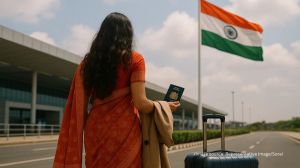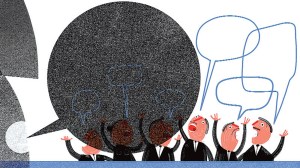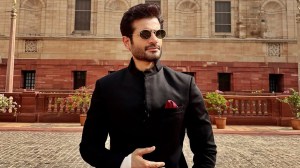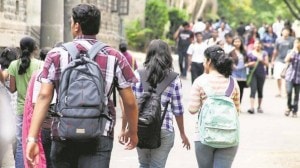Centre still undecided on Karmapa
NEW DELHI, JANUARY 10: Nearly a week after the dramatic "escape" to India of the young Buddhist Karmapa Lama, the Government con...

NEW DELHI, JANUARY 10: Nearly a week after the dramatic "escape" to India of the young Buddhist Karmapa Lama, the Government continues to maintain a studied silence that seems to betray a certain nervousness over its diplomatic fallout with China.
New Delhi has refused to go beyond a one-sentence official statement three days ago, soon after the 14-year-old Orgyen Trinley Dorji was traced in Dharamsala, and continues to maintain that it is "inquiring into the circumstances… and the consequences" of the Lama’s arrival.
In stunning contrast are the events of March-April 1959 and the public remarks made by then Prime Minister Jawaharlal Nehru reacting to the escape from Tibet of the Dalai Lama, then only 23 years old.
On March 23, 1959, eight days before the Dalai Lama arrived at the Chutangmu checkpoint in Arunachal Pradesh on the Indo-Tibetan border on March 31, Nehru appealed to none other than Beijing to assure the safety of the Dalai Lama, who he said was "held in high veneration by ourpeople".
Addressing the Parliament, Nehru stated that India had "no intention of interfering in the internal affairs of China". Nevertheless, he pointedly referred to the "long tradition of cultural and religious" ties that continue to exist between India and Tibet.
Back in January 2000, no one in the Government, including External Affairs Minister Jaswant Singh, has made a statement about what India intends to do with Dorji, acknowledged as the head of the Karmapa Buddhist sect by both China and the Dalai Lama.
Government sources are only prepared to say that they will "watch the situation for 8-10 days" before taking a final view.
New Delhi is not likely to deport young Dorji but neither is it likely to grant him political asylum, according to sources. One view in the Government is whether the young Karmapa and his aides may have "deliberately planned" his arrival in India to coincide with the visit here of the US special coordinator Julia Taft in the country.
Taft on Monday left for Dharamsala,the headquarters of the Dalai Lama in Himachal Pradesh, near where Dorji is taking refuge. But the official spokesman of the Ministry of External Affairs stressed that she had made no request to either meet the Dalai Lama or the Karmapa.
Note, however, the remarkable difference in tone in Nehru’s statements in March-April 1959. In Parliament on April 3, Nehru confirmed not only that the Dalai Lama had indeed arrived in Arunachal’s Tawang district, but that the Tibetan god-king had been granted political asylum in India.
He admitted to the House that recognition of the Tibetan leader’s spiritual rights in India was a "complicated matter which would have to be considered".The External Affairs Ministry’s then press director P N Menon was asked to go to Tezpur, Assam, on April 4, 1959, to bring the Dalai Lama with him back to Delhi.
Ties with Beijing, however, were already getting rough by 1959 and the Dalai Lama’s decision to escape to India, mere days after the Chinese Government ordered the Tibetanleader to report to their envoy in Tibet Gen. Chang Ching, didn’t help.
On April 18, Chinese premier Chou En-lai reiterated that the Dalai Lama had been "abducted to India" and hoped he would "be able to free himself from the hold of the rebels and return to the motherland".
Nehru reacted strongly, saying he was "grieved beyond measure" by Chinese charges that India was involved in the Tibetan revolt in Lhasa, which would not stand the "slightest scrutiny". But he also pointed out that the Chinese action in Tibet had tended to discredit the `Panchasheel’ document.



- 01
- 02
- 03
- 04
- 05



























